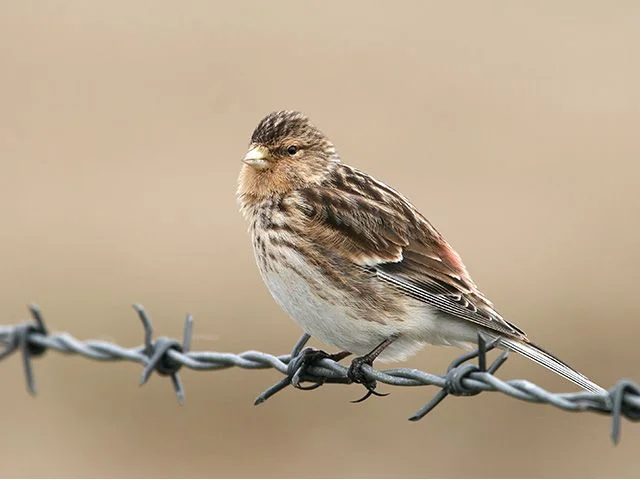Birds to benefit from major investment

More than £995,000 has been earmarked by Natural England for the organisation’s Species Recovery Programme (SRP) in 2013-14. The money will fund 56 conservation projects aimed at protecting some of Britain’s most endangered wildlife, including mammals, birds, insects, fish and plants. This investment will be matched by the programme’s partners.
The birds that are set to benefit from the initiative are Twite, Wood Warbler and Hawfinch, all of which are Red listed as Species of Conservation Concern in the UK due to recent declines in their breeding populations (1981-2000).
Much of Natural England’s conservation effort is focused on creating resilient landscapes for wildlife by improving existing habitats and creating new ones to extend or link surviving fragments. However, some species need more targeted help, tailored to their own specific needs and detailed requirements, which is where the SRP comes in.
Twite will have its own initiative. Currently the only regular breeding population of the species remaining in England is in the South Pennine Moors SSSI, a 20,938 ha site across West Yorkshire, Lancashire, Greater Manchester and North Yorkshire. The project will focus on securing sympathetic management of nesting and feeding areas in the region through Environmental Stewardship, and monitoring the outcome of these interventions.
A shared programme for Hawfinch and Wood Warbler will concentrate on diagnostic research to identify the causes of both species’ decline. This will involve field-based studies, including habitat surveys of woods that have retained and recently lost Hawfinches, and monitoring the species’ breeding success using cameras, as well as novel field studies of Wood Warblers at key sites in the New Forest, Hampshire, and Devon.
For more than a decade, the SRP has been improving the conservation status of a range of rare plants and animals and has helped bring some of them back from the brink of extinction. Some, such as Red Kite, have increased spectacularly and no longer require targeted conservation action, but for others, ‘success’ can mean just halting the initial decline, with more hard work still left to do.
Maddy Jago, Natural England’s Director for Landscape and Biodiversity said: “I am delighted that the funding we’ve been able to secure to support the recovery of some our most threatened species is being matched by our partners. Together we are making real progress in co-ordinating our efforts and contributions towards improving the conservation of England’s important wildlife, be that by providing match funding, harnessing the enthusiasm of volunteers or sharing the expertise across the partnership.”
| Over the next year, the SRP will be funding 56 separate conservation initiatives. Some of the species that will benefit from this investment include: |
|
• Wart-biter Cricket • Twite • Fen Raft Spider • Freshwater Pearl Mussel • Short-haired Bumblebee • Farmland butterfly initiative • Hawfinch and Wood Warbler • Stalked Sea-purslane • Red Helleborine • White-clawed Crayfish |
|
The projects are split over three different streams. Click on the links below to find out more about which species are being targeted: • Research projects • Advice and delivery projects • Monitoring projects |

